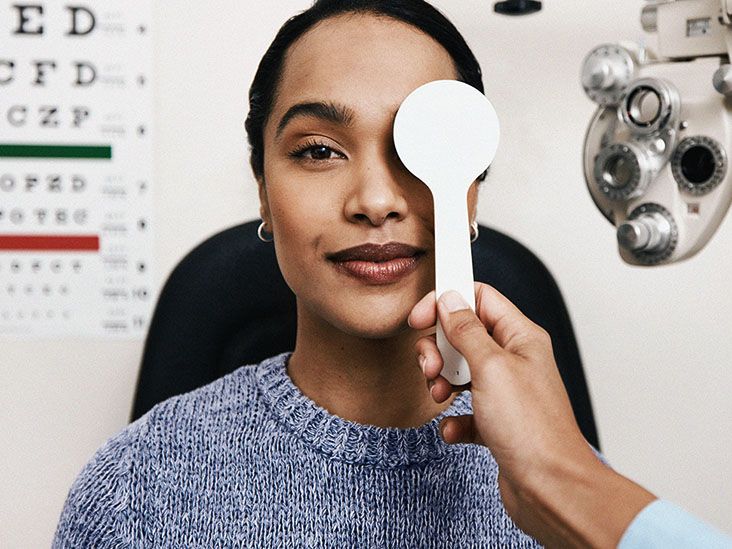Eye Center in Andalusia: Premier Solutions for Vision Care
Eye Center in Andalusia: Premier Solutions for Vision Care
Blog Article
Is Refractive Surgical Procedure Right for You? Aspects to Consider for Better Eyecare
In the realm of eye treatment, the decision to go through refractive surgical procedure is a substantial one that requires thoughtful factor to consider. As individuals seek quality and flexibility from the constraints of corrective lenses, various elements enter play when identifying the suitability of such a treatment. From the complexities of one's ocular health to the complexities of individual assumptions and everyday routines, each facet holds relevance in the broader landscape of refractive surgical treatment candidateship. By assessing these essential aspects with treatment and precision, a more clear path towards educated decision-making emerges.
Eye Health Evaluation
When thinking about refractive surgical procedure, a detailed eye health evaluation is vital to assess the viability of the treatment for each and every individual. eye doctors in andalusia. This analysis entails a collection of exams and examinations performed by an eye care specialist to determine the overall health and wellness of the eyes, the presence of any type of underlying conditions, and the security of the refractive error
During the examination, numerous factors are thought about, such as the individual's medical history, current eye prescription, corneal density, student dimension, and tear film quality. These analyses aid to determine any type of contraindications to refractive surgical procedure, such as corneal abnormalities, cataracts, or neglected eye infections. Furthermore, the examination assists to manage individual assumptions pertaining to the prospective end results of the surgical procedure based upon their one-of-a-kind eye characteristics.
Ultimately, the eye health evaluation is crucial in guaranteeing the safety and security and effectiveness of refractive surgery, as it offers beneficial insights right into the individual's eye health and wellness condition and assists figure out the most ideal treatment options for attaining optimum aesthetic results. (andalusia pediatrics)
Way Of Life Evaluation
A detailed lifestyle analysis is integral in establishing the viability of refractive surgical procedure for a person's visual improvement needs. Lifestyle factors such as profession, leisure activities, and everyday activities play a vital duty in the decision-making process pertaining to refractive surgery. People with careers that entail a high level of physical task or exposure to ecological components might have various visual needs contrasted to those with less active workdesk tasks. Comprehending exactly how a person's way of living might impact their vision post-surgery is necessary for taking care of assumptions and making certain optimal results.
Moreover, way of living habits such as sporting activities involvement, outdoor tasks, or also skin care routines can affect the healing procedure and general success of refractive surgery. As an example, individuals that participate in get in touch with sports might need to take extra precautions to protect their eyes throughout the healing period. Additionally, individuals with considerable sun exposure might require additional post-operative care to avoid complications. By conducting a comprehensive way of life analysis, eye treatment specialists can tailor their referrals and therapy plans to fulfill the distinct needs of each individual, inevitably resulting in improved visual outcomes and fulfillment.
Assumption Positioning

Patients require to understand that while numerous people attain 20/20 vision or better adhering to refractive surgery, some may still require glasses for specific activities like analysis find more information or driving at night. Managing these assumptions aids prevent disappointment and frustration post-surgery, leading to an extra positive total experience for the client.
Threat Evaluation

Aspects that might raise the danger of problems include age, particular clinical conditions like autoimmune illness, unstable vision prescription, slim corneas, and unrealistic patient expectations. Furthermore, choosing a knowledgeable and skilled doctor, complying with pre and post-operative treatment guidelines faithfully, and disclosing any type of relevant clinical background can assist reduce threats.
To decrease the probability of issues, ophthalmologists perform detailed pre-operative examinations to determine any type of contraindications to surgery. They additionally talk about the prospective dangers and benefits with people throughout the assessment procedure. By engaging in open communication and shared decision-making, both the individual and the eye doctor can collaborate to identify if refractive surgical procedure is the best option based on individual danger profiles site web and preferred outcomes.
Appointment Relevance
Considering the vital function of informed decision-making in evaluating dangers and potential issues in refractive surgical procedure, the appointment process holds considerable importance in guiding clients towards ideal end results. During the examination, the eye doctor examines the individual's eye wellness, refractive errors, and overall viability for surgical treatment. This initial assessment is vital in determining one of the most ideal treatment for each and every person, considering factors such as corneal thickness, pupil dimension, and existing eye conditions.
Furthermore, the examination offers as a possibility for patients to review their assumptions, concerns, and any type of questions they might have pertaining to the surgical procedure. Clear communication between the individual and the specialist is essential to guarantee realistic expectations and a complete understanding of the possible dangers and advantages entailed.
Furthermore, the consultation enables the specialist to discuss the different surgical options offered, their respective results, and the post-operative treatment needed. This detailed conversation empowers clients to make well-informed decisions concerning their eye treatment, bring about much better satisfaction and outcomes post-surgery.
Conclusion
Finally, people thinking about refractive surgery needs to go through a comprehensive eye health analysis, analyze their lifestyle behaviors, align their assumptions directory with potential results, examine the affiliated threats, and focus on appointments with eye care experts. These factors play a crucial duty in establishing the viability of refractive surgical treatment for each individual, making certain ideal end results and fulfillment with the procedure.
Individuals taking into consideration refractive surgical procedure usually have high expectations regarding the end results, anticipating best vision without the demand for glasses or call lenses. While refractive surgical treatment can significantly enhance vision and reduce dependence on visual aids, it is crucial for patients to understand that outcomes may vary based on private aspects such as the level of refractive mistake, corneal thickness, and total eye health.
By engaging in open communication and shared decision-making, both the client and the eye doctor can function together to identify if refractive surgical procedure is the ideal option based on private risk accounts and desired end results.
Taking into consideration the crucial duty of notified decision-making in examining risks and possible difficulties in refractive surgery, the consultation process holds significant importance in guiding patients in the direction of optimal outcomes. During the appointment, the ophthalmologist reviews the person's eye wellness, refractive errors, and general viability for surgical procedure.
Report this page